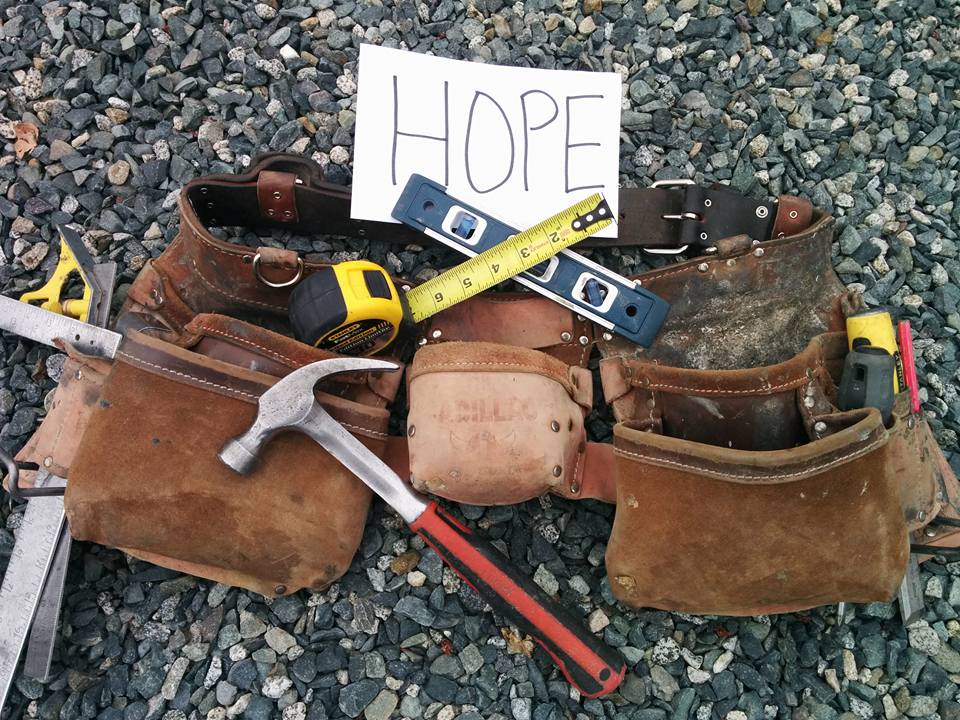Lorelie Rozzano is a guest blogger for Vertava Health. Using Your Tools – Recovering From Addiction A young man walked down a street one day. Avoiding eye contact with the people he passed, he stared at the cement sidewalk in front of him. His mind raced furiously, running through various scenarios. He didn’t see the colorful buildings he passed, or the white fluffy clouds up in the sky. He missed the bright red and yellow tulips blooming in the flower boxes. He never noticed the old woman who smiled at him or the toddler up ahead, taking her first steps. His head low, he muttered obscenities under his breath, as he placed one foot in front of the other. He was mad at his family, for they had stopped giving him money. The young man felt frustrated. He was used to getting what he wanted. As he fumbled the phone from his front pocket and squinted down at the screen, he decided to try again. Jabbing a button he held the phone to his ear. His long, jean clad legs, bounced up and down and his eyes narrowed, before he thrust the phone back into his pocket. Making a mental note to call yet again, he decided he’d up the ante. No wasn’t a word he understood. No just meant, he’d try harder. Passersby noticed the distracted, angry young man, but avoided him. The young man didn’t care. He was on a mission – a mission, to find drugs. Although he didn’t know it, there was much that had played out before this scene. Imagine this young man wearing an invisible tool belt. Although he couldn’t see it, he feels its presence daily, and it weighs heavily on him. In his tool belt were all his dishonest thoughts, his self-centered wants and his past actions. The tool belt hung low on his hips, bulging. It was tearing at the seams and over-flowing. It carried self-pity, remorse, blame, justifications, minimizing, rationalizing, denial, grandiosity, entitlement, resentments, anxiety and pain. With each new thought and action, the young man added more bulk and weight; to his already over-full, tool-belt. Because the young man can’t see this tool belt, it doesn’t occur to him, to take it off. But even if he could see it, the tool belt has become a part of him. It dictates his thoughts, feelings and actions. His emotional, physical, psychological and spiritual body, have been hijacked by this invisible, but deadly, apparatus. You might think this young man is doomed. And you’d be right, to a certain extent. Without help this young man is most certainly doomed. He cannot get better on his own. For the most part, he doesn’t even know, he’s sick. His invisible tool belt has hijacked his ability to reason, his sense of logic and even his sense of self-preservation. It is greater than his need for food, or procreation. It is greater than love, or even that of life, itself. This tool belt is addiction. It cannot be taken off, at least, not without something else to put in its place. In order for this young man to recover, his go to tools, must be changed. It’s a little like helping a blind man, see. Restoring vision doesn’t happen all at once, but rather, little by slow. First, this young man needs to be in a safe place. Somewhere where he’s not able to impulsively pick up a phone or get drugs, or manipulate other people into getting them, for him. His physical body will need help. He will need detox and should be medically supervised, throughout. This will be the quickest part of the process. The next challenge will be repairing his cognitive and emotional body. He’ll need to learn to identify dishonest thoughts and replace them, with honest ones. As his mind clears and the impact of his behaviour is felt, he will need emotional support. Grief is healthy, self-pity, is not. Each tool he carried within his tool belt will need to be taken out and carefully examined. The hammer of inappropriate anger will be replaced, with a level of healthy fear. The dull saw of hopelessness and despair, will be minimized by a measure of hope and excitement. Although his tool belt will still be invisible, he knows it’s there. When it begins to get heavy again, he’s equipped to empty it. By sharing his thoughts, feelings and actions, with other recovering addicts and by making commitments, to change the things he can, his tool belt and the new tools in it, will be his biggest asset. Inside his tool-belt is hope, faith, love, patience, gratitude, honesty, respect, integrity, morals and values. The tool belt is balanced. It is with him at all times. Without these hard earned recovery tools he can easily slip back into his old ways. There is something incredibly magical about these new tools of his, too. For the more he uses them, the happier and healthier, he becomes. These tools continue to bring blessings such as joy, peace, contentment and healthier relationships. But it doesn’t stop there. The new tools cultivate a shift in consciousness and a profound appreciation for that which has been previously, unrealized. For all those who use these tools will experience the ultimate awakening – that is one, of a spiritual kind. If you or someone you know needs help, please call this confidential support line for assistance. 844-470-0410.
Using Your Tools – Recovering From Addiction


